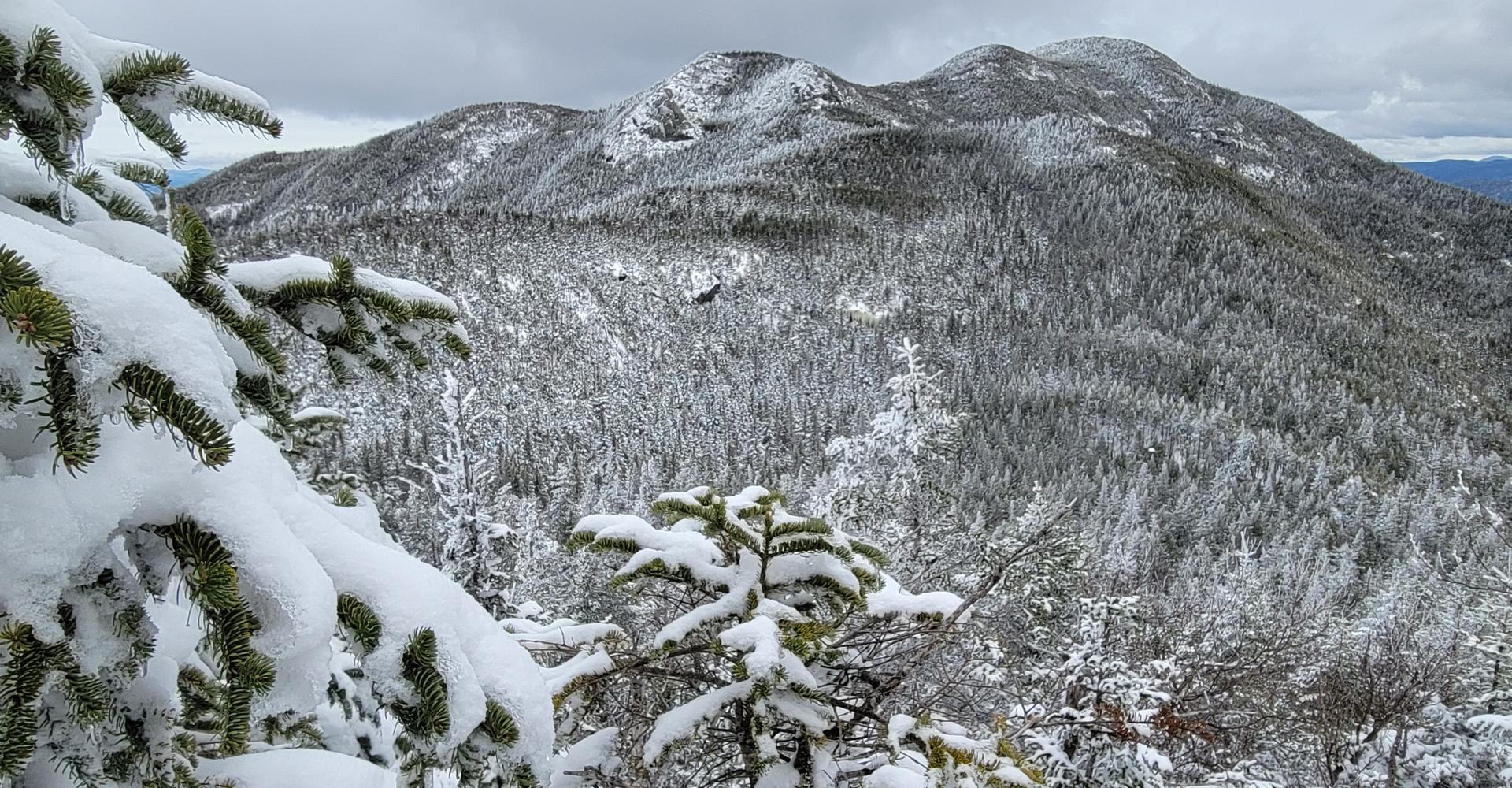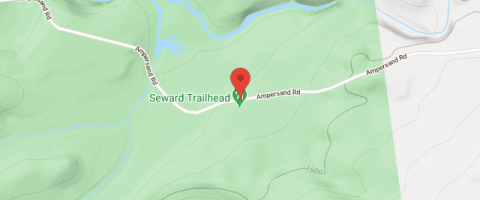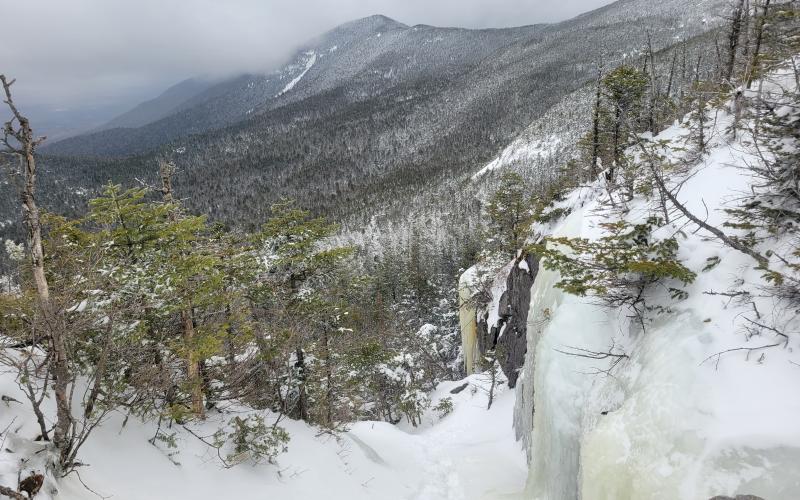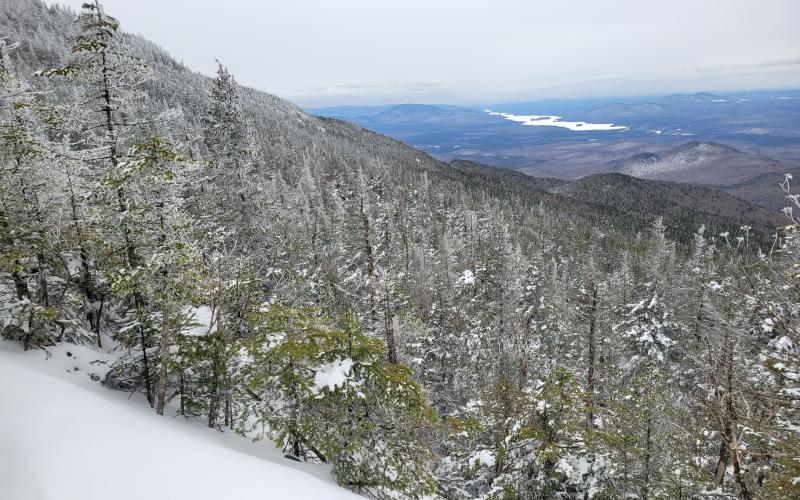range
Valid Jan. 10
- Mar. 30
Valid Jan. 10
- Mar. 30
10% off admission tickets when purchased online
High Falls Gorge
High Falls Gorge
Get 10% off adult and child winter 2024-2025 admission tickets with code: WINTER25.
promotion
Activities and Attractions
range
Valid Jan. 11
- Jan. 11
Valid Jan. 11
- Jan. 11
Adirondack Guides
Mirror Lake Inn Resort and Spa
Mirror Lake Inn Resort and Spa
Get the most out of your stay - Guide Services Available!
package
Activities and Attractions
range
Valid May. 2
- May. 4
Valid Mar. 3
- May. 4
Culinary Weekend Getaways
Mirror Lake Inn Resort and Spa
Mirror Lake Inn Resort and Spa
We have once again partnered with The Carriage House Cooking School. Led by Chef Curtiss Hemm to offer select getaway packages celebrating the bounty of the Adirondack Park's vibrant farm to table landscape.
package
Dining Deals
range
Valid Jan. 21
- Jan. 21
Valid Jan. 21
- Jan. 21
Pet Getaway
Voco Saranac Lake
Voco Saranac Lake
Your dog deserves an Adirondack getaway too. Book our pet friendly hotel near Lake Placid welcomes every member of your crew. Book our Pet Package and enjoy a dog friendly room with pet fees included.
package
Other
range
Valid Jan. 11
- Jan. 11
Valid Jan. 11
- Jan. 11
Woof and Wander
Bluebird Lake Placid
Bluebird Lake Placid
Your pooch will be as comfortable as their owners with our pet friendly package!
package
Other
range
Valid Jan. 11
- May. 1
Valid Jan. 11
- Jan. 11
Nordic Ski With Olympic Medalist Andrea Henkel Burke
Mirror Lake Inn Resort and Spa
Mirror Lake Inn Resort and Spa
Stay and Nordic Ski with an Olympic Gold Medal Recipient!
package
range
Valid Dec. 19
- Jan. 22
Valid Dec. 19
- Jan. 22
Winter Wonderland Special!
Stay longer and Save!
package
range
Valid Jun. 20
- Sep. 7
Valid Mar. 12
- Jun. 30
Guided Nature Immersions - 10% off for Pre-Season Registration
Adirondack Riverwalking & Forest Bathing
Adirondack Riverwalking & Forest Bathing
Picture it now...you are wading the Ausable River on a warm summer day, feel the cool water against you, hear the sounds of the birds and the water, surrounded by lush greenery and feel the textures of the river bed...
promotion
Activities and Attractions
range
Valid Oct. 23
- May. 31
Valid Oct. 23
- May. 31
Stay and Save!
Cambria Lake Placid - Lakeside Resort
Cambria Lake Placid - Lakeside Resort
Stay 3 nights and get 20% off.
package
Mid-Week Discounts
range
Valid Jan. 8
- Dec. 31
Valid Jan. 8
- Dec. 25
100th Anniversary Package
100 years at the Inn gets you $100 Resort Credit PER DAY!
package
Other
range
Valid Mar. 1
- Apr. 6
Valid Mar. 1
- Apr. 6
Midweek Ski & Stay Package
Mirror Lake Inn Resort and Spa
Mirror Lake Inn Resort and Spa, The View Restaurant at the Mirror Lake Inn, The Spa at the Mirror Lake Inn, Whiteface Mountain
Midweek at Whiteface Mountain provides the ultimate ski experience! Avoid the crowds and lift lines often associated with weekend and holiday periods with this incredible midweek offer.
package
Mid-Week Discounts, Ski
range
Valid Dec. 22
- Dec. 27
Valid Dec. 7
- Dec. 30
Discounted Holiday Dates
New York Rental By Owner
New York Rental By Owner
Sunburst Cottage on Mirror Lake in Lake Placid! Sunburst is an Adirondack lakefront house that features a 7-person hot tub and free wifi. This is the premier vacation rentals on Mirror Lake with 6 bedrooms , each with their own private bath. In...
package
Holidays, Mid-Week Discounts
range
Valid Jan. 5
- Jan. 5
Valid Jan. 5
- Jan. 5
Stay More, Play More
High Peaks Resort
High Peaks Resort
Stay for FREE!
package
Other
range
Valid Jan. 11
- Apr. 30
Valid Jan. 11
- Jan. 11
Ski with Olympic Medalist Andrew Weibrecht
Mirror Lake Inn Resort and Spa
Mirror Lake Inn Resort and Spa
Ever dreamed of spending time on the slopes with an Olympic athlete? Well, now you can!
package
Ski
range
Valid Jan. 11
- Jan. 11
Valid Jan. 11
- Jan. 11
Romance Package
Placid Bay Hotel
Placid Bay Hotel
Surprise your significant other with a romantic Getaway! Includes roses, wine glasses, and chocolates upon arrival.
package
Other
range
Valid Jan. 21
- Mar. 31
Valid Jan. 21
- Mar. 31
Titus Mountain Ski Package
Voco Saranac Lake
Voco Saranac Lake
Enjoy your stay at the award winning voco Saranac Lake which includes two adult lift tickets at Titus Mountain Family Ski Center. Additional complimentary amenities include ski storage at the hotel and preferred parking at the mountain.
package
Activities and Attractions, Ski
range
Valid May. 1
- Nov. 2
Valid Mar. 17
- May. 1
Forest Bathing Guided Experience - 10% off for pre-season registration
Adirondack Riverwalking & Forest Bathing
Adirondack Riverwalking & Forest Bathing
Guided forest sensory immersion walk for all. Sign up early for 10% off!
promotion
Activities and Attractions, Early Bird Discounts
range
Valid Dec. 1
- Dec. 25
Valid Aug. 8
- Dec. 19
Christmas Buy One Get One FREE
Golden Arrow Lakeside Resort
Golden Arrow Lakeside Resort
Buy One Get One FREE on stays December 1 - December 25! Call 855-421-3002 to book today! Terms: Buy One Get One Free valid for stays December 1-25, 2024, Sunday - Wednesday nights. Not valid on existing reservations; new reservations only. Cannot be...
package
Local Deals, Mid-Week Discounts
range
Valid Mar. 1
- Dec. 31
Valid Mar. 1
- Dec. 31
Babymoon
Mirror Lake Inn Resort and Spa
Mirror Lake Inn Resort and Spa, The Spa at the Mirror Lake Inn, The View Restaurant at the Mirror Lake Inn, The Cottage
Whether you're celebrating the news of an addition to your family, or taking that last minute getaway before the birth, this package is for you! With the included $75 nightly credit, indulge in a romantic candle light dinner in The View, a relaxing...
package
Spa, Special Events
range
Valid Mar. 1
- Dec. 31
Valid Mar. 1
- Dec. 31
The Adirondack Elopement
Mirror Lake Inn Resort and Spa
Mirror Lake Inn Resort and Spa, The View Restaurant at the Mirror Lake Inn, The Spa at the Mirror Lake Inn
This all-inclusive Lake Placid elopement package is perfect for those who are ready to say "I do" and want to do it in style. Elopement Package includes: 2-Nights lodging & vow ceremony in your luxurious Colonial House "Placid Suite" Breakfast each...
package
Special Events
range
Valid Jan. 11
- Jan. 11
Valid Jan. 11
- Jan. 11
4th Night Free!
Lake Placid Lodge
Lake Placid Lodge
Enjoy a night on us! 4th night free when you stay 3.
package
Mid-Week Discounts
range
Valid Feb. 11
- Apr. 15
Valid Feb. 11
- Mar. 31
Stay and Ski!
Cambria Lake Placid - Lakeside Resort
Cambria Lake Placid - Lakeside Resort, Whiteface Mountain Ski Resort
When you book your stay at Cambria Hotel Lake Placid, you'll save on your lift ticket for mid-week skiing at Whiteface Mountain. Our affordable weekday rates, paired with this ski offer, make it the perfect time for your next getaway!
package
Mid-Week Discounts, Ski
range
Valid Feb. 28
- Mar. 10
Valid Jan. 25
- Mar. 7
Prescott House ADK Winter Pride Promo
Prescott House ADK Winter Pride Promo
package
Special Events
range
Valid Mar. 1
- Dec. 25
Valid Mar. 1
- Dec. 31
Bed & Breakfast Package
Mirror Lake Inn Resort and Spa
Mirror Lake Inn Resort and Spa, The View Restaurant at the Mirror Lake Inn
Our most popular package is back and better than ever. Start your day off right by experiencing our re-imagined breakfast menu in The View restaurant, or by relaxing in your robe and enjoying selections from our room service menu delivered right to...
package
Mid-Week Discounts, Dining Deals
range
Valid Jan. 9
- Dec. 31
Valid Jan. 9
- Dec. 31
Babymoon
The Cottage, The View Restaurant at the Mirror Lake Inn, The Spa at the Mirror Lake Inn
Celebrate your growing family with $75 nightly resort credit!
package
Dining Deals, Spa
range
Valid Feb. 28
- Dec. 31
Valid Feb. 28
- Dec. 31
Stay 4, Get a 5th Night Free
Mirror Lake Inn Resort and Spa
Mirror Lake Inn Resort and Spa
That's right, stay 4 or more consecutive nights and we'll add a 5th night onto your stay for FREE!* This offer will be available for a limited time only and cannot be combined with any other promotions. Best Available Rates start at $349.00 per night,...
package
Mid-Week Discounts
range
Valid Dec. 6
- Dec. 8
Valid Jan. 8
- Dec. 5
Girls Getaway Weekend
The View Restaurant at the Mirror Lake Inn, The Spa at the Mirror Lake Inn
$75 Resort Credit per room per NIGHT to pamper the Girls!
package
Dining Deals, Shopping Deals, Spa
range
Valid Feb. 8
- Feb. 7
Valid Feb. 8
- Feb. 7
Stay More, Play More
Whiteface Lodge Resort & Spa
Whiteface Lodge Resort & Spa, The Spa at Whiteface Lodge
Linger longer in the Adirondacks and be rewarded!
package
Spa
range
Valid Feb. 4
- Feb. 28
Valid Feb. 4
- Feb. 28
Fabulous Value in Lake Placid: Dancing Bear Condo
Adirondack "By Owner" Vacation Rentals
Adirondack "By Owner" Vacation Rentals
- The condo is a bright, spacious and charming 1 bedroom. Completely renovated and beautifully furnished. Perfect for couples. Surrounded by exquisite views of the mountains and lake a few steps from the condo, adjacent to the Whiteface Club and Resort.
package
Mid-Week Discounts, Other
range
Valid Jun. 1
- Oct. 1
Valid Jan. 11
- Oct. 1
Golf & Stay Package
Crowne Plaza Lake Placid
Crowne Plaza Lake Placid, Lake Placid Club Golf Courses
Golf Packages starting at: $119.00 * Weekend & Summer packages available at higher rates
package
Golf
range
Valid Jan. 12
- Jan. 12
Valid Jan. 12
- Jan. 12
Supper & Stay
Stagecoach Inn
Stagecoach Inn
Enhance your stay at The Lake Placid Stagecoach Inn with an exceptional 3-course meal.
package
Dining Deals
range
Valid Jan. 21
- Jan. 21
Valid Jan. 21
- Jan. 21
Stay and Dine
Voco Saranac Lake
Voco Saranac Lake
Receive a 50 dollar credit per stay to use in our Boathouse Saranac Lake Pub. Enjoy an exceptional dining experience with unparalleled views great food and craft beers in a friendly and relaxed environment.
package
Activities and Attractions, Dining Deals
range
Valid May. 1
- Jun. 22
Valid Mar. 24
- Jun. 22
Pre-Season Golf Package
Cambria Lake Placid - Lakeside Resort
Cambria Lake Placid - Lakeside Resort, Whiteface Club & Resort Golf Course
Stay and Golf in Lake Placid. Enjoy unlimited golf and a cart for 18 holes at the Van Kleek-designed championship course at Whiteface Club and Resort.
package
Golf
range
Valid Mar. 21
- Mar. 23
Valid Mar. 1
- Mar. 21
Your Turn Women’s Ski Clinic
Mirror Lake Inn Resort and Spa
Mirror Lake Inn Resort and Spa, The View Restaurant at the Mirror Lake Inn, Whiteface Mountain
Join us March 21-23, 2025 for an exciting women's ski clinic with your hosts, instructor Lisa Ballard and two-time Olympic medalist Andrew Weibrecht. This exciting experience will help you to improve your skiing while taking in the breathtaking...
package
Mid-Week Discounts, Ski
range
Valid Oct. 23
- Oct. 23
Valid Oct. 24
- Oct. 23
SAVE 10% off any weekly rentals!
New York Rental By Owner
New York Rental By Owner
SAVE 10% off any weekly rentals!
package
Mid-Week Discounts
range
Valid May. 1
- May. 31
Valid Jan. 1
- May. 27
Stay & Save
The Devlin
The Devlin
Book a 3-night stay with The Devlin and get 10% off your visit.
package
Mid-Week Discounts
range
Valid Feb. 8
- Feb. 7
Valid Feb. 8
- Feb. 7
Rustic Romance Getaway Package
Whiteface Lodge Resort & Spa
Whiteface Lodge Resort & Spa
Experience the unspoiled Adirondacks while spoiling yourself and a loved one
package
Other, Special Events
range
Valid Feb. 8
- Feb. 7
Valid Feb. 8
- Feb. 7
Spa Escape
Whiteface Lodge Resort & Spa
Whiteface Lodge Resort & Spa, The Spa at Whiteface Lodge
Our Spa Escape package is ideal for couples or friends traveling together.
package
Spa
range
Valid Jan. 11
- Jan. 11
Valid Jan. 11
- Jan. 11
The Adirondack Elopement
Mirror Lake Inn Resort and Spa
Mirror Lake Inn Resort and Spa, The View Restaurant at the Mirror Lake Inn, The Spa at the Mirror Lake Inn
The ultimate, intimate "I do" experience.
package
Dining Deals, Other, Spa
range
Valid Jan. 11
- Jan. 11
Valid Jan. 11
- Jan. 11
MILITARY AND FIRST RESPONDER OFFER
Bluebird Lake Placid
Bluebird Lake Placid
10% off our Best Available Rate for all active as well as retired military personnel, and first responders on leisure stays.
package
Military Discounts
range
Valid Jan. 11
- Jan. 11
Valid Jan. 11
- Jan. 11
Spa Experience
Town House Lodge by the Lake
Town House Lodge by the Lake
What better way to connect and relax with your partner after a long day on the mountain than to enjoy an in-room spa experience for two?
package
Spa
range
Valid Jan. 11
- Jan. 11
Valid Jan. 11
- Jan. 11
Romance Package
Town House Lodge by the Lake
Town House Lodge by the Lake
Package Details Surprise your significant other with a romantic evening waiting for you on the day of your arrival!
package
Other
range
Valid Jan. 8
- Jan. 8
Valid Jan. 8
- Jan. 8
Adirondack a la Carte
High Peaks Resort
High Peaks Resort, Dancing Bears Restaurant
Complete your Adirondack Vacation with a $150 dining credit to Dancing Bears!
package
Dining Deals
range
Valid Mar. 7
- Mar. 31
Valid Mar. 7
- Mar. 31
March Special at Scenic Point Chalet
Last Minute Special! Available from Mar 1, 2025 to Mar 31, 2025 Special Rate Being Offered: $195 a night - three night minimum!
package
range
Valid May. 11
- Jun. 26
Valid Mar. 6
- Jun. 26
Saranac Inn Golf & Stay Package
Saranac Inn Golf & Country Club
Saranac Inn Golf & Country Club
Includes 18 holes of golf with cart each day, continental breakfast, and sales tax 2 days / 1 night $190.00 per person 2 days / 2 nights $240.00 per person 3 days / 2 nights $310.00 per person
promotion
Golf
range
Valid May. 2
- May. 4
Valid Jan. 6
- Apr. 30
Yoga Retreat with Todd Norian
Cambria Lake Placid - Lakeside Resort
Cambria Lake Placid - Lakeside Resort
3 DAY YOGA RETREAT WITH WORLD-RENOWNED YOGI TODD NORIAN
package
Special Events, Dining Deals
range
Valid Nov. 12
- Dec. 2
Valid Nov. 12
- Dec. 2
Turkey Special in November
Adirondack "By Owner" Vacation Rentals
Adirondack "By Owner" Vacation Rentals
Turkey Special In November - 3nts/4day weekend ($500/night: $1500) or 2 nts/3 day weekend ($600/night: $1200)
package
Holidays
range
Valid Mar. 1
- Apr. 6
Valid Mar. 1
- Apr. 6
Ski with Olympic Medalist Andrew Weibrecht
Mirror Lake Inn Resort and Spa
Mirror Lake Inn Resort and Spa
Ever dreamed of spending time on the slopes with an Olympic athlete? Well, now you can! Available exclusively to hotel guests, you can now ski alongside the Inn's very own U.S. Skiing Hall of Famer & 2-Time Olympic Medalist, Andrew Weibrecht. Open to...
package
Ski
range
Valid Jan. 11
- Jan. 11
Valid Jan. 11
- Jan. 11
Spa Experience
Placid Bay Hotel
Placid Bay Hotel
Enjoy an in-room spa experience for two with your stay. What better way to connect and relax with your partner after a long day on the mountain!
package
Spa
range
Valid Mar. 1
- Dec. 31
Valid Mar. 1
- Dec. 31
Pamper Yourself
Mirror Lake Inn Resort and Spa
Mirror Lake Inn Resort and Spa, The View Restaurant at the Mirror Lake Inn, The Spa at the Mirror Lake Inn
Let's face it, life is hectic these days and you deserve a break. Grab your girlfriend, your mom, your sister, and head to the Inn for some much needed time away to relax and recharge. This package includes: Overnight accommodations Daily breakfast in...
package
Spa
range
Valid Mar. 2
- Mar. 9
Valid Feb. 12
- Mar. 6
Winter Pride 3rd Night free!
Book Whiteface Farm for your Adirondack Winter Pride weekend and receive your third night free!
package
Special Events
range
Valid Nov. 27
- Mar. 30
Valid Nov. 27
- Mar. 30
10% off Gift The Gorge Package
High Falls Gorge
High Falls Gorge
Treat someone you love with the gift of nature!
This is an e-gift card program with packages for admission to the park, money to spend in the Gift Shop, and even more to spend in the River View Café.
promotion
Activities and Attractions, Holidays, Dining Deals
range
Valid Mar. 7
- Mar. 9
Valid Mar. 7
- Mar. 9
Winter Pride Pet Apparel
Man and Beast
Man and Beast
25% All toys and apparel for Pets that are Pride or Rainbow themed!
promotion
Shopping Deals
range
Valid Mar. 1
- Dec. 31
Valid Mar. 1
- Dec. 31
Couples Getaway
Mirror Lake Inn Resort and Spa
Mirror Lake Inn Resort and Spa, The View Restaurant at the Mirror Lake Inn, The Cottage, The Spa at the Mirror Lake Inn
Escape with your loved one to a truly romantic experience. Choose your preferred accommodation and enjoy a $75 nightly credit, which can be used to indulge in a romantic candle light dinner in The View, a relaxing spa service or fun at The Cottage...
package
Spa, Special Events, Dining Deals
range
Valid Mar. 28
- May. 3
Valid Feb. 10
- May. 3
Stay-Cation at Cambria
Cambria Lake Placid - Lakeside Resort
Cambria Lake Placid - Lakeside Resort
Take a Staycation!
Can't get away to somewhere warmer for spring break this year? Get away with us instead!
promotion
Local Deals
range
Valid Jan. 9
- Dec. 31
Valid Jan. 9
- Dec. 31
Couples Getaway
The View Restaurant at the Mirror Lake Inn, The Cottage, The Spa at the Mirror Lake Inn
Escape with your loved one to a truly romantic experience - sparkling wine and chocolate-covered strawberries overlooking spectacular views of Mirror Lake and the Adirondack High Peaks is just the beginning...
package
Dining Deals, Spa
range
Valid May. 1
- Oct. 31
Valid Dec. 6
- Nov. 1
Zip and Whip Expedition
Farmhouse UTVs
Farmhouse UTVs, Experience Outdoors
Experience Outdoors and Farmhouse UTVs have teamed up to bring your family and friends the Adirondack adventure you've been waiting for. Double up on a UTV and zipline experience. Ziplines are located in Lake Placid and the UTVs are located in Gabriels.
promotion
Activities and Attractions






